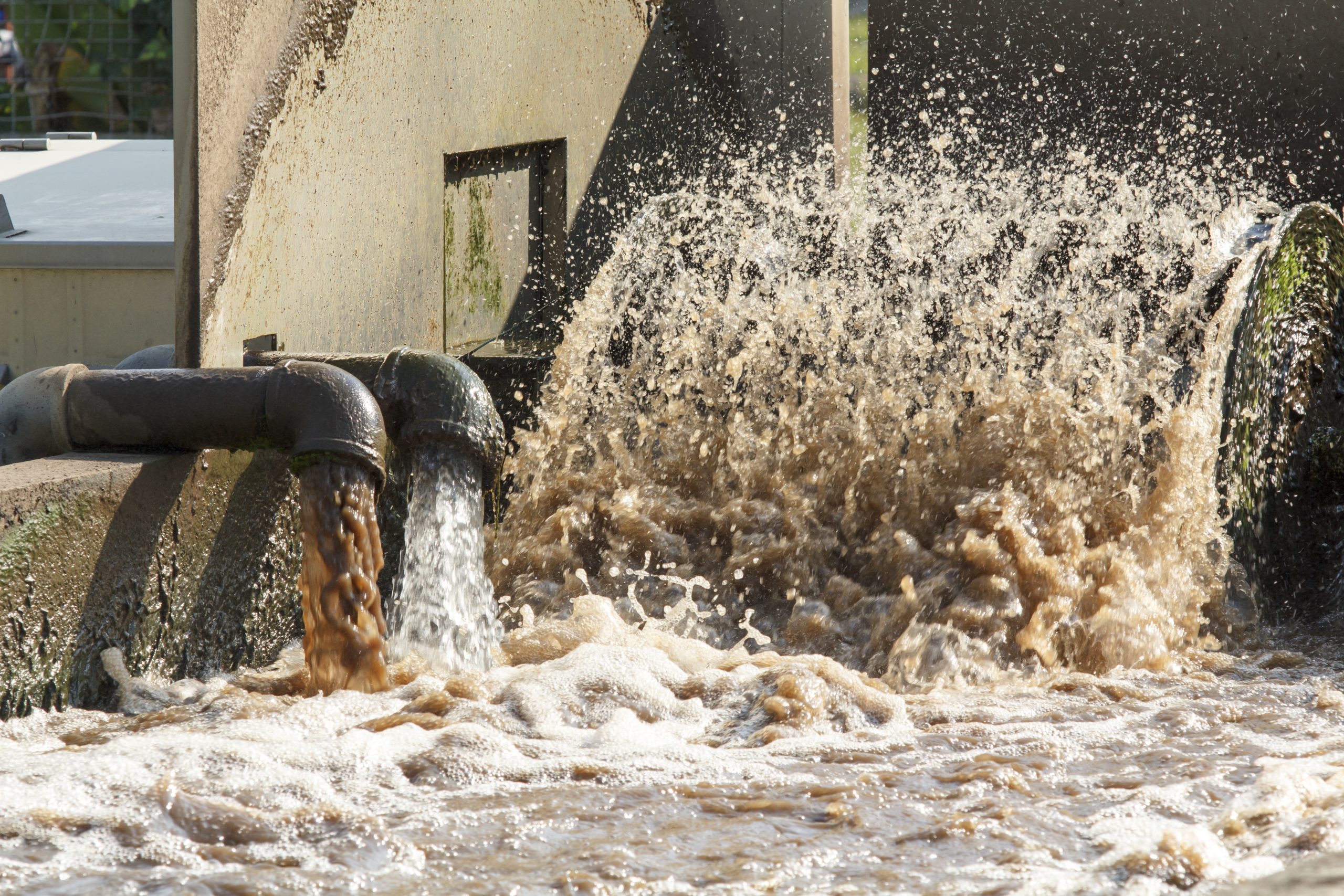Industrial Waste Water Treatment-- Lasting Solutions for Industrial Water Administration
Industrial Waste Water Treatment-- Lasting Solutions for Industrial Water Administration
Blog Article
Innovations and Breakthroughs in Hazardous Waste Water Treatment Technologies
The landscape of industrial wastewater treatment is going through a transformative shift, driven by advancements that boost both performance and sustainability. As governing criteria advance, the integration of AI and machine learning into wastewater management systems promises to streamline operations and ensure conformity.
Review of Drainage Treatment Technologies
Wastewater treatment innovations include a series of methods developed to eliminate impurities from industrial effluents before their launch right into the atmosphere. These innovations are vital for preserving ecological equilibrium and making certain conformity with environmental regulations. The key groups of wastewater treatment include physical, chemical, and organic techniques, each serving distinctive functions based on the nature of the impurities present.

Organic therapy approaches employ bacteria to break down natural matter, making them especially efficient for organic-rich effluents. Strategies like turned on sludge and biofilm reactors harness the natural degradation capacities of microorganisms, leading to considerable reductions in biochemical oxygen need (BODY)
Advanced Purification Strategies
Advanced purification techniques represent a vital development in the world of industrial wastewater therapy, improving the performance of impurity elimination procedures. Industrial Waste Water Treatment. These approaches incorporate a series of technologies, including microfiltration, ultrafiltration, nanofiltration, and reverse osmosis, which offer sequential barriers for different bit sizes and chemical structures
Microfiltration and ultrafiltration use membrane systems to remove suspended solids, microorganisms, and bigger natural particles, enhancing the high quality of effluent prior to further therapy. Nanofiltration links the space between ultrafiltration and reverse osmosis, effectively removing organic compounds and divalent ions, thus lowering the lots on downstream procedures.
Reverse osmosis provides the highest degree of filtration by enabling only water and tiny particles to pass with its semi-permeable membranes, making it ideal for redeeming top notch water from industrial effluents. Recent innovations in membrane layer technology, consisting of the advancement of more fouling-resistant and long lasting materials, have actually substantially improved functional efficiency and lowered expenses.
Incorporating these innovative filtering strategies not only boosts the general treatment procedure but additionally adds to sustainability initiatives by allowing water reuse and resource healing in industrial settings. (Industrial Waste Water Treatment)
Biological Treatment Advancements

Furthermore, the growth of engineered organic systems, such as membrane layer bioreactors (MBRs), combines organic treatment with advanced membrane layer filtering. This integration enables higher effluent top quality and minimized footprint, making it ideal for space-constrained industrial centers. Advancements in genetically engineered bacteria have additionally emerged, boosting the biodegradation of particular impurities, such as pharmaceuticals and hefty metals, that are commonly challenging to get rid read the full info here of.
Furthermore, the execution of bioaugmentation techniques, where beneficial microorganisms are introduced to boost the existing biological therapy procedures, has revealed promising cause boosting treatment efficiency. These technologies jointly signify a pattern in the direction of more efficient and lasting organic treatment approaches that can adjust to the evolving complexities of commercial wastewater streams. As industries continue to prioritize ecological conformity, these biological developments will certainly play a critical role in wastewater administration.

Resource Recuperation Techniques
In industrial setups, the integration of source healing methods has actually become significantly crucial for enhancing sustainability and decreasing waste. These techniques focus on removing important products and energy from wastewater streams, therefore transforming potential contaminants right into recyclable sources.
One famous approach is nutrition recovery, where nitrogen and phosphorus, commonly present over in wastewater, are recorded and converted right into fertilizers. This not only lowers environmental influences but likewise gives a circular economic situation solution for farming applications. In addition, technologies such as anaerobic food digestion enable the conversion of organic waste into biogas, an eco-friendly energy source that can balance out fossil gas use in industrial procedures.
Furthermore, advanced filtering and membrane layer modern technologies help with the healing of commercial byproducts such as metals and salts. These recuperated products can be rehabilitated right into production processes, decreasing the demand for virgin sources.
Future Fads in Waste Water Management
As markets progressively focus on sustainability, the future of wastewater monitoring is established to undergo significant changes. Technological improvements, such as fabricated knowledge and machine learning, will enable much more effective tracking and administration of wastewater systems. These innovations can anticipate maintenance requirements, enhance therapy processes, and enhance decision-making, ultimately decreasing functional expenses and ecological effect.
Additionally, the combination of circular economy concepts will certainly play a critical role in wastewater administration. Industries are expected to shift towards systems that not just deal with wastewater yet likewise recuperate important resources, such as nutrients, water, and energy. This change will certainly lessen waste and promote the reuse of products, straightening with worldwide sustainability goals.
Arising therapy methods, such you can try here as membrane bioreactors and progressed oxidation processes, will better improve the effectiveness of wastewater therapy, enabling higher quality effluents ideal for reuse. Furthermore, regulatory structures are likely to evolve, stressing stricter standards for wastewater discharge and motivating industries to take on ingenious treatment remedies.
Final Thought
In conclusion, the development of commercial wastewater therapy technologies demonstrates a considerable change in the direction of enhanced efficiency and sustainability (Industrial Waste Water Treatment). Technologies in innovative filtration techniques, biological treatments, and source recuperation approaches highlight the industry's commitment to environmental stewardship.
The landscape of industrial wastewater treatment is going through a transformative change, driven by technologies that boost both efficiency and sustainability.Wastewater treatment technologies encompass a range of methods developed to eliminate pollutants from commercial effluents before their release into the atmosphere.Utilizing the power of biological processes has led to significant developments in the treatment of industrial wastewater.Additionally, the implementation of bioaugmentation strategies, where advantageous microbes are introduced to enhance the existing organic therapy processes, has revealed encouraging outcomes in enhancing treatment performance. These technologies check it out jointly symbolize a pattern towards more reliable and lasting biological treatment methodologies that can adjust to the advancing intricacies of industrial wastewater streams.
Report this page